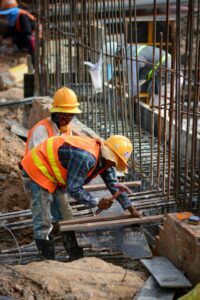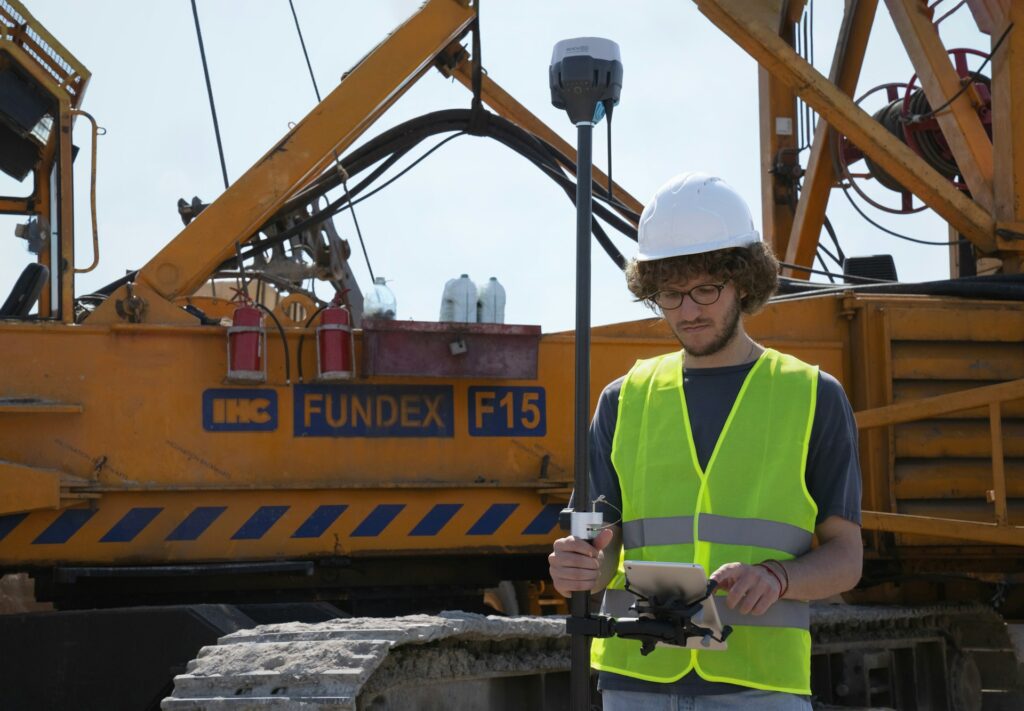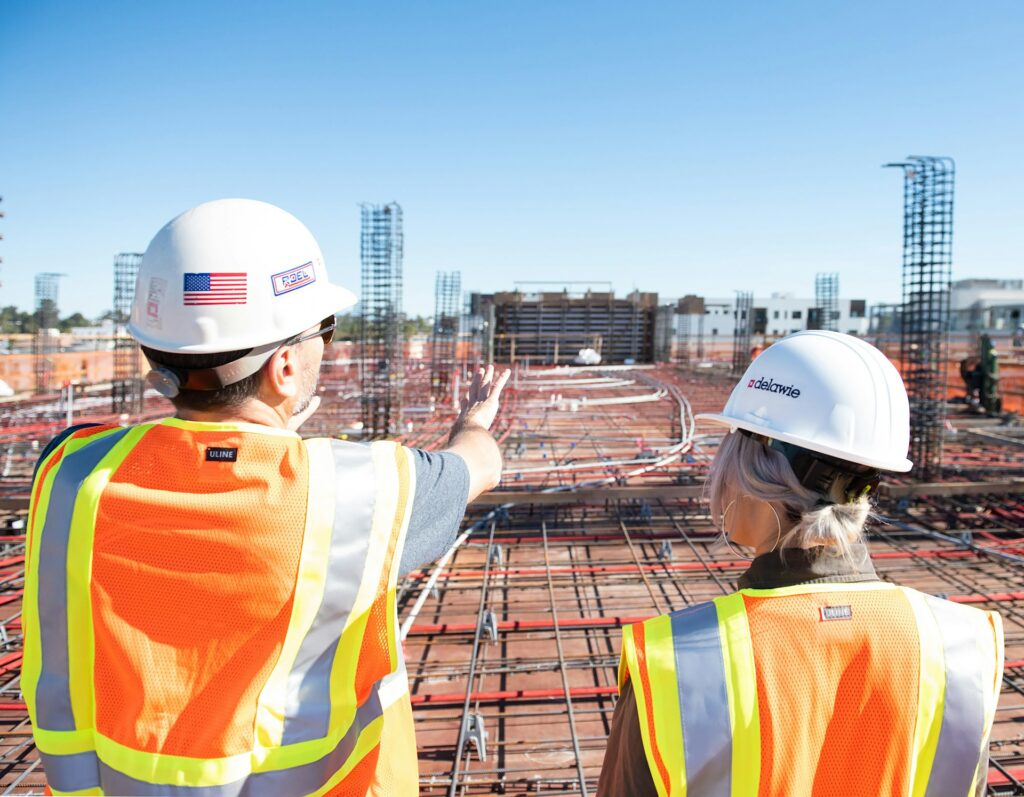 There are a lot of construction jobs available in Canada right now, spanning many trades and areas. This need is being driven by significant projects and business advancements, and contractors are actively looking for qualified personnel because there is a shortage of workers, even though the Canadian job industry is busier than ever.
There are a lot of construction jobs available in Canada right now, spanning many trades and areas. This need is being driven by significant projects and business advancements, and contractors are actively looking for qualified personnel because there is a shortage of workers, even though the Canadian job industry is busier than ever.
Major infrastructure projects and commercial expansions are flourishing, but contractors from Toronto to Vancouver are having trouble filling positions. By January 2025, construction jobs increased 3.6% (by 58,000 jobs) year over year, indicating high demand, according to Statistics Canada. Ironically, a shortage of qualified people continues to cause delays in many projects. Numerous employment issues are coming together at once, ranging from high turnover and a shortage of competent labour to the knock-on consequences of automation and changing immigration laws.
Is it Easy to Get Hired for a Construction Job in Canada?
Yes, hiring engineers and construction workers from other nations is possible through Canada’s numerous trade agreements. You might be able to benefit from international  trade agreements if you’re from a nation that has one with Canada. Besides, there is a growing need for qualified workers in Canada’s construction sector. An increasing population, deteriorating infrastructure, and a thriving real estate market are some of the causes of the rise in demand. The population of Canada is steadily increasing, and as more people come here, there is a greater need for new residential and commercial buildings. Existing infrastructure must be maintained and improved in addition to new development initiatives.
trade agreements if you’re from a nation that has one with Canada. Besides, there is a growing need for qualified workers in Canada’s construction sector. An increasing population, deteriorating infrastructure, and a thriving real estate market are some of the causes of the rise in demand. The population of Canada is steadily increasing, and as more people come here, there is a greater need for new residential and commercial buildings. Existing infrastructure must be maintained and improved in addition to new development initiatives.
Bridges, roads, water treatment facilities, and other public infrastructure fall under this category. There is a chance for qualified construction specialists to take advantage of the deteriorating infrastructure and assist in maintaining and improving these buildings. In recent years, Canada’s real estate market has also been rising. The demand for ecological and energy-efficient structures is another element driving up demand to hire construction specialists. In light of the growing emphasis on cutting carbon emissions and enhancing energy efficiency, developers are seeking experts in green building techniques and technology.
Why Should You Work Construction Jobs?
All kinds of construction jobs provide you with the opportunity to use your hands, frequently outside and in a range of settings. As a construction worker, you will create homes, roads, bridges, hospitals, and other essential infrastructure. Since employers frequently pay more for individuals trained to handle hazardous materials, run high-tech equipment, maintain workplace safety, lead a team, and more, professional development opportunities abound in the construction industry.
10 Highest-Paying Construction Jobs in Canada
 For individuals who are prepared to put in the necessary effort, construction provides excellent prospects for long-term employment, opportunity for growth, and high job security. Construction employment is expected to expand by 4% over the next ten years, which is comparable to the national average for all other jobs, according to the U.S. Bureau of Labor Statistics. There are numerous employment opportunities in the construction industry, ranging from entry-level professions to those requiring advanced training or certification.
For individuals who are prepared to put in the necessary effort, construction provides excellent prospects for long-term employment, opportunity for growth, and high job security. Construction employment is expected to expand by 4% over the next ten years, which is comparable to the national average for all other jobs, according to the U.S. Bureau of Labor Statistics. There are numerous employment opportunities in the construction industry, ranging from entry-level professions to those requiring advanced training or certification.
Plumbing
The average annual compensation for a plumber nationwide is $73,341. Plumbers’ main responsibilities include mapping and installing pipes in construction jobs according to designs. Drainage fixtures, toilets, sinks, and pipelines for air, water, and other liquids are the responsibility of workers in this occupation. Although a high school degree can be used to become a plumber, most states require a formal certification.
Drafter of architecture
The U.S. Bureau of Labour Statistics reports that the national average wage is $56,581 annually and The main responsibilities are using a variety of software programs, and architectural drafters produce technical drawings based on the designs of engineers and architects. Using their knowledge of construction methods, they add specifics and outline the information required to finish the project, including measurements, methods, and the kinds of materials to be employed. The most common drafters in construction jobs are those who work in architecture, civil engineering, and electrical design. Completing a draughting curriculum and having a high school diploma or GED are typically prerequisites.
Electrician
The average pay nationwide is $53,980 annually. The major responsibilities of electricians in building projects are to design, install, and maintain electrical systems. Electrical control systems, circuit breakers, and lighting fixtures are all positioned under their supervision. The majority of electricians merely require a high school degree or GED, while many states require an official license.
Technician for Safety
The U.S. Bureau of Labor Statistics reports that the national average pay is $52,600 annually. The main responsibilities are that Safety technicians collect data on workplaces and ensure that employees are wearing safety gear, such as hard helmets and masks. Additionally, they support safety specialists by verifying that the necessary safety remedy has been completed. Safety technicians, also referred to as occupational health and safety (OSHA) technicians, may investigate occurrences on construction sites and provide safety training. Some places demand certification, and they require a high school degree or its equivalent.
Building Engineers
The national average compensation for a building engineer is $75,241 annually. The major responsibilities of building engineers are to supervise the design and upkeep of a building’s mechanical, electrical, and structural elements. They could also examine reports and finances to make sure their work complies with project specifications. To carry out repairs and preventive maintenance, building engineers frequently remain on the site following construction. A bachelor’s or master’s degree is a requirement to become an advanced building engineer, whereas a two-year college degree is important for entry-level building engineers.
Civil Engineer
The average pay nationwide is $88,264 annually. Main responsibilities are that Civil engineers plan and manage the creation of a wide range of projects, such as roads, airports, bridges, harbours, power plants, public and private structures, and more. Civil engineers additionally guarantee that projects adhere to safety, health, and environmental regulations. Although many also have a master’s degree, a bachelor’s degree is required to work as a civil engineer.
Construction Inspector
The average annual compensation for a construction inspector nationwide is $65,767. Construction inspectors’ main responsibilities include monitoring project completion to make sure it complies with local laws, government regulations, and contractor requirements. The construction inspector is responsible for approving code-compliant plans and, if required, issuing stop-work orders to bring buildings into compliance. Workers in this position examine the electrical, plumbing, and structural elements of the structure. Although some businesses prefer a college degree, you can work as a construction inspector with just a high school education or a GED.
Supervisor of Construction
The national average wage is $90,463 annually. The main responsibilities are overseeing every facet of a building project. They are in charge of recruiting and overseeing consultants, engineers, suppliers, contractors, and subcontractors. Construction superintendents make certain that projects adhere to environmental, health, and safety regulations. Keeping projects on track and under budget is another responsibility of a superintendent. Superintendents oversee quality control and assign any additional work required to complete the construction jobs after it is finished. While a high school degree can get you a career as a superintendent, most jobs require a bachelor’s degree.
Supervisor of Construction
The average annual wage nationwide is $84,874. The main responsibilities of construction managers are to supervise the majority of a project’s planning, design, and assembly. These employees set realistic completion dates for tasks and ensure that projects don’t go over budget. Additionally, managers oversee the work of general labourers, electricians, plumbers, and other employees by assigning them to specific roles. Construction managers need to hold a bachelor’s degree in their field.
Excavator
The national average pay is $46.77 per hour. The main responsibilities are that they are frequently the first contractors hired since they remove dirt and debris for the building foundation. They drive a big machine called an excavator, which has a bucket with claws fastened to a mechanical arm. This allows them to dig the foundation, remove dirt from the project site, and dig trenches for infrastructure and subterranean utilities. In addition to having experience with smaller construction job equipment, a high school degree or its equivalent is a requirement.
5 Skills to Begin with in a Construction Job without a Certificate
General Labourer
The duties of a general labourer will include everything from using power and hand tools to using a range of other tools and equipment. If you want to work as a general contractor or for a big corporation, this is a wonderful place to start. You will get a wide range of abilities and work in different areas of the profession in this role. With pay ranging from $13 to $33 per hour, the BLS estimates that the average salary is $44,130 annually.
Your job involves everything from basic carpentry to plasterboard installation, fixture and appliance installation, concrete mixing, and construction preparation. On any given workday, the site foreman will assign you to the areas where general labour is most needed, ensuring that you will learn new skills.
Flooring and Tile Installation
This is another opportunity that doesn’t require any formal training or construction expertise. Most likely, you’ll begin as an assistant, which will enable you to assist with these installs. You will learn how to install and finish many kinds of flooring in homes and businesses, such as wood, vinyl, tile, and carpet. Finishing flooring involves several procedures, including measuring and cutting the flooring as well as removing old materials and getting them ready for new flooring.
Installers of Insulation
An insulation installer is an additional construction position that doesn’t require any prior experience. You will gain practical experience in the HVAC field in this role as well. Insulation professionals replace and install insulation in ceilings, floors, and walls. You may also work on construction sites for homes or businesses. Insulation has a crucial role in regulating the temperature of buildings. Properly insulated structures may save energy and, eventually, money.
Asphalt Worker
Additionally, you might want to think about starting your construction job with an asphalt paving company. Although the majority of asphalt pavers will use machinery to tamp soil, gravel, or other materials, you will probably begin as an asphalt worker helping the people who run such machines. As an asphalt worker, you will prepare surfaces for grading and paving, such as parking lots, driveways, and roadways. It’s a physically taxing job that involves using shovels and other hand equipment. Also, you will learn how to use a paver and an asphalt roller. You can get the licence you need to operate this construction equipment with the assistance of numerous businesses.
Sheet Metal Employee
You can also start your construction career as a sheet metal worker. A high school degree or GED is frequently all that employers need, rather than any prior experience. The BLS estimates that the typical compensation is about $58,000 annually, with hourly wages ranging from $16 to $45 per hour. In this position, you will use power tools and other equipment to create, install, and occasionally repair thin metal sheets. Although they are also used in roofing, these sheets are commonly seen in HVAC systems. Even though you will eventually learn a sophisticated trade, employers will probably make you begin with more mundane work.
Why Work Canada Construction Jobs as a Foreigner?
 For professionals working in engineering and construction jobs from outside of Canada, Canada may be a fantastic destination to further your career. And for good reason! In addition to many opportunities for career advancement, Canada provides immigration options for foreign professionals with these in-demand talents. However, because of the numerous programs and their disparate requirements, navigating the Canadian immigration system can be challenging.
For professionals working in engineering and construction jobs from outside of Canada, Canada may be a fantastic destination to further your career. And for good reason! In addition to many opportunities for career advancement, Canada provides immigration options for foreign professionals with these in-demand talents. However, because of the numerous programs and their disparate requirements, navigating the Canadian immigration system can be challenging.
Where to Find Construction Jobs in Canada
Construction Jobs can be found on Websites such as Indeed, Glassdoor, and LinkedIn. They are all Construction job sites and are excellent sources. You can also look for construction jobs through the Job Bank run by the Canadian government. Outpost Recruitment and other construction employment agencies can assist in matching job seekers with suitable openings.
Tips for Construction Job Seekers in Canada
To find the right kind of job in Canada, always update your resume; emphasize your relevant experience and abilities. Make connections by networking with individuals in the construction sector. Also, be proactive by contacting possible businesses and applying for employment online. Additionally, think about moving; There can be more opportunities in some places than others. Finally, certain positions may call for particular licenses or certificates, so prepare for them.
Read Also: Nanny Jobs in Canada With Visa Sponsorship 2025
Conclusion
In Canada, construction occupations are essential to the development of the country’s communities, economy, and infrastructure. Everywhere in the nation, you can see the efforts of construction workers, from tall buildings in Toronto to vital infrastructure in rural places. People with different levels of education and experience can work in this industry since it offers a wide range of opportunities, from general labour positions to highly skilled crafts and project management professions.
The need for skilled professionals in construction jobs is predicted to continue to be high as Canada grows due to urbanisation, population growth, and the need for sustainable building techniques. Actually, for workers, immigrants, and young individuals starting their careers, labour shortages in many provinces offer both special opportunities and challenges. Construction is still a vital and rewarding industry because of the competitive pay, opportunities for professional growth, and satisfaction that comes from witnessing real results from one’s labour. Building Canada’s future is at the heart of construction, which is about more than simply bricks and mortar. Whether you’re thinking about a career in construction or want to contribute to its advancement, construction occupations provide a strong basis for both individual and societal advancement.
